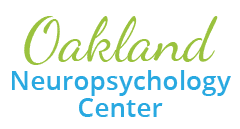While most individuals with learning disabilities and ADHD are diagnosed as children or adolescents, some are diagnosed with these issues later on as adults, frequently while in college. While they may have been struggling with reading, writing, or math skills over their entire academic careers, they compensated adequately through hard work, extraordinarily high levels of effort, much persistence, and consistent help from parents and teachers. Many report that the help they received from tutors, coaches, and parents during high school was crucial in helping them keep up with school demands, pass tests, and obtain good grades. However, this also masked underlying difficulties and delayed the time problems were correctly identified. Once in college, many individuals no longer have access to this support. They find themselves to be quickly overwhelmed by the amount of work they are required to complete, and are incapable of performing at the same level. Others find that they are disorganized and struggle to keep track of important deadlines, which results in high levels of anxiety. A number of college students end up achieving well below their true level of ability on tests. Others find themselves at high risk of failing important classes or even, entire semesters.
In many cases, the reason for their unexpected academic performance problems has to do with undiagnosed learning or attentional problems. Once they enter college, the academic demands far surpass their abilities to keep up without the proper assistance and access to educational accommodations. Often, certain demands (e.g. taking timed tests, reading large amounts of information under time constraints, etc.) directly recruit areas of difficulty and interfere with the student’s ability to demonstrate their knowledge and understanding of concepts and material. The first step in overcoming this situation is to determine whether the challenges they are experiencing are secondary to undiagnosed learning and/or attentional disorders. This provides important information about a student’s learning style, including strengths and weaknesses, and facilitates access to educational accommodations when indicated. For some of our college-age clients, a neuropsychological evaluation is the piece they needed to help them understand their learning challenges, reach their full potential, and successfully complete their degree. If you have questions or would like to obtain further information, please contact Dr. Beaulieu at 248-644-9466 to schedule an appointment at your earliest convenience.



